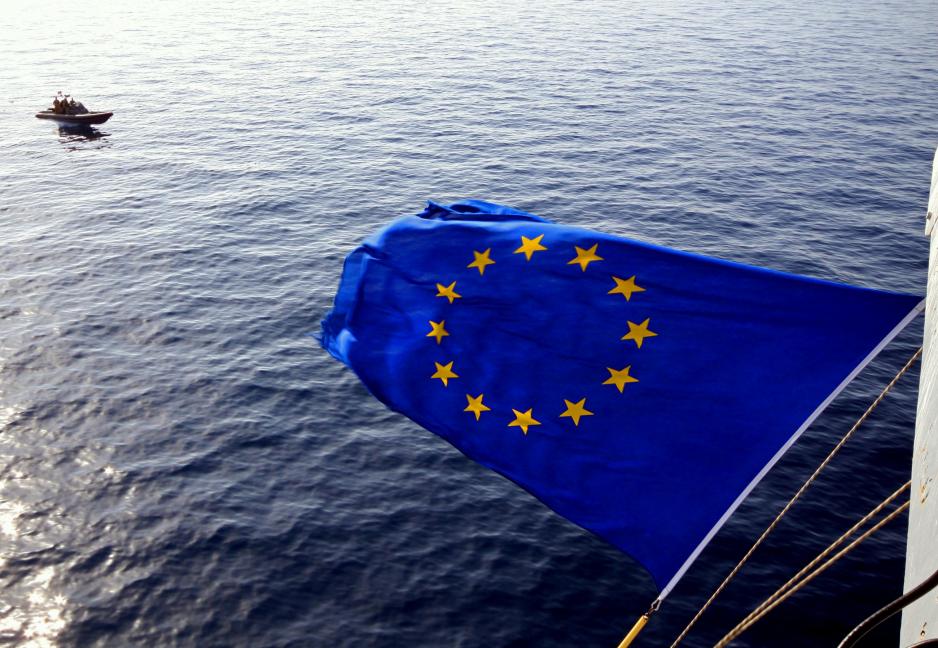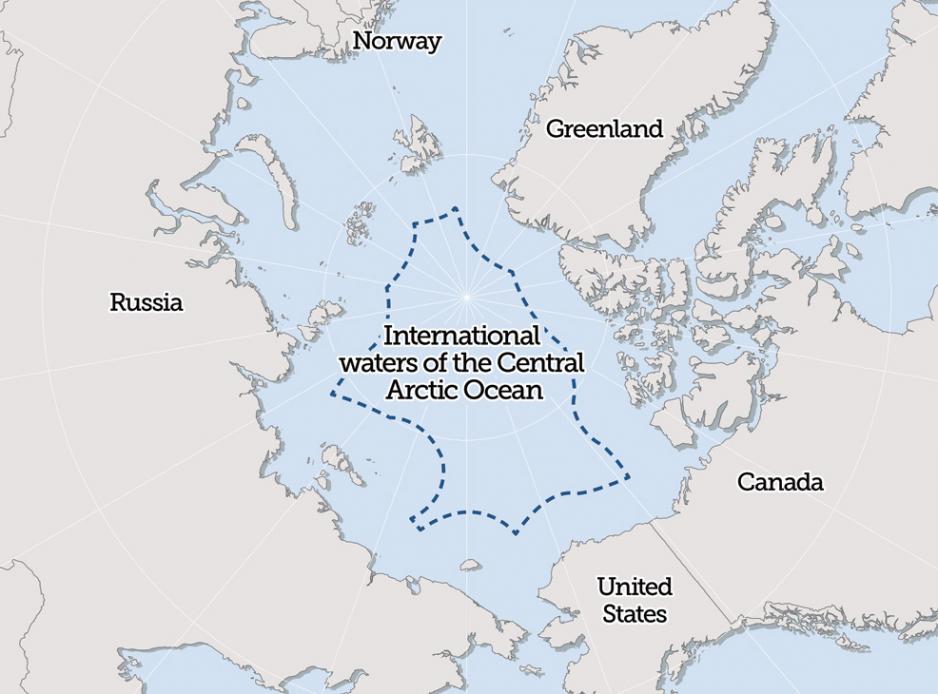European Union Adopts Ban on Fishing in the Arctic

European-flagged vessel on the high seas. (Source: European Union Naval Force)
The European Union has ratified an agreement to prevent unregulated fishing in the high seas of Arctic and joins nine countries in an effort to protect the Central Arctic Ocean.
The international accord was finalized in October 2018 in Greenland and signed by the five Arctic Coastal states - Canada, Norway, Denmark, Russia and the U.S. - as well as Iceland, China, Japan, South Korea and the EU. It will enter into force once legislative bodies in all ten countries have ratified it.
Protecting an area the size of the Mediterranean
As part of the agreement commercial fishing will be banned for a period of at least 16 years across an area as large as the Mediterranean. It includes provisions for automatic extensions every five years, until scientific studies monitoring the 2.8 million square kilometer area have been conducted to show what fish stocks exist in the area and if they could be harvested sustainably. The parties would then negotiate and agree upon a mechanism and quotas to ensure the responsible use of the fish stocks.
“I am proud to announce that the EU will soon be a part of this historic agreement that for the first time protects the Arctic Ocean and its fragile ecosystem. It is a vital step towards achieving greater sustainability and strengthening ocean governance,” states Petre Daea Minister of Agriculture and Rural Development of Romania and President of the Council.

Boundaries of the Central Arctic Ocean. (Source: Courtesy of Pew)
Environmental change requires protection
The legal protection has become necessary as previously inaccessible parts of the Arctic Ocean due to thick and persistent sea ice have opened up over the past decade. Compared to the 1980s and 1990s, sea ice has decreased by as much as 50 percent during the summer months. While no large-scale commercial fishing has yet occurred in the Arctic the dramatic change in the region’s climate and increases in human activity will place ongoing strain on the region’s ecosystem. The largest impact will come from rapidly growing shipping activity, including major international companies like Maersk and COSCO sending vessels through the region.
“As new open waters emerge at the top of the world, international leaders have agreed that it would be risky and unwise to allow commercial fisheries to operate in the Arctic before scientists have established a baseline for monitoring the health of the region’s marine ecosystem. By using science-based measures to guide decision-making, the agreement will go a long way toward conserving this unique environment,” says Steve Ganey, senior director for land and oceans programmes at Pew.
A number of agreements for the Arctic
Negotiations on the agreement took place over a two-year period and began with the non-binding Oslo Declaration. Formal negotiations began in December 2015 when the five Arctic coastal states were joined by the five additional signatories. The proposal was already adopted by the European Parliament last month and lauded as a milestone to “safeguard healthy marine ecosystems, ensure the conservation of fish stocks, and guarantee the sustainability of the fishing activities.”
The ban on fishing joins three other legally binding accords passed previously by the eight Arctic states. The first was the Search and Rescue Agreement in 2011, followed by the Oil Pollution Preparedness and Response Agreement in 2013. In 2017 the Arctic states agreed on enhancing International Arctic Scientific Cooperation. The next major anticipated milestone will be the ban of Heavy Fuel Oil (HFO) negotiated under the auspices of the International Maritime Organization, which would outlaw the use and carriage of this type of fuel across the Arctic Ocean.

